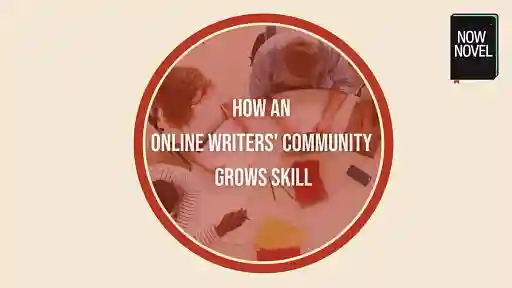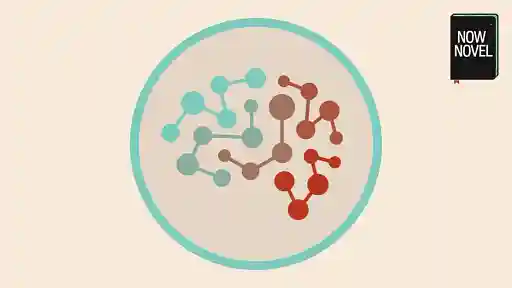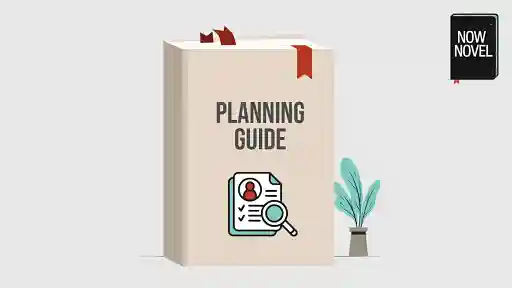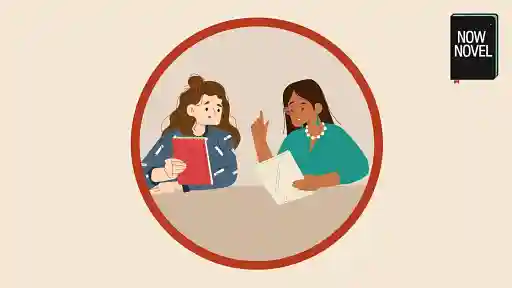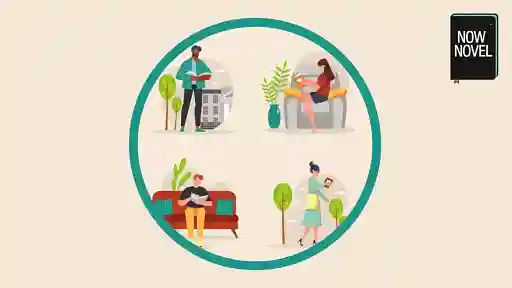What to do when your character insists that they visited Calgary in Canada and that’s where part of the story takes place? Except you’ve never visited Calgary, never mind Canada. Or if your character goes to Antarctica, and insists you come with, but getting to Antarctica is way out of your price range?
What to do when you simply can’t get on that airplane?
While research gleaned from visiting a place is invaluable, and first prize, there are other ways to do research and get into the ‘feel’ of a place.
Before you start here are some of our handy tips on research.
Here are some ways to do this.
Map it, Wiki it
Firstly, pin it! There are a plethora of ways to map it from Google Maps, Maps.me, Bing Maps, MapQuest, and even Waze. Get a sense of where your place is in relation to the surrounding areas. See what the surrounding attractions are. See how long it would take to walk from Abbesses Metro Station in Paris to the Sacré Coeur. Online maps also include photos these days, so you can have a look around the metro station before heading into the streets. Don’t forget Google Earth either for a 3D effect and street view! Also use Google Street View to virtually explore streets and neighborhoods in the area.
Head to Wikipedia too: it’ll give you a good, broad oversight of the place you are researching. Read, too, author Daniel Peace's tips for how to research place and why he loves Wikipedia.
Read, read, read
This sounds incredibly obvious, but read as much about a place as you can about a place if you want to set a story there. For example, for many years I was fascinated by the idea of visiting Antarctica. Although I would have relished a chance to visit, that never happened. So I read non-fiction travel narratives, ranging from a woman who worked as a chef there to the Travelers Tales anthology, Antarctica: Life on the Ice edited by Susan Fox Rogers, which collects essays from a variety of writers. I also read fiction set there, such as Lucy Jane Bledsoe’s The Big Bang Symphony. This gave me such an incredible window into what life is like ‘on the ice’. I’ve also read fiction set on the tourist ships that visit Antarctica, and this has given me a another sense or experience of what visiting that continent might be like. I havent (yet) set a piece of fiction in Antarctica, but I do feel more confident about trying my hand at setting a story there.
If a place interests you, you might already have read a good deal around it, but if not read widely, from narrative travel guides to fiction to guidebooks. The latter are useful for gleaning factual information about a place, such as how long it would take a character to walk from one point to another.
Also read online newspapers: reading about what occurs in a place and what news gets a mention is a great window into another world. And there will probably be photos of the scene. Try also to get hold of local or regional-specific magazines or newspapers, as these focus on the nitty gritty aspects of a particular area.

Tune in
Watch documentaries and movies set in the place you want to explore. Trawl though YouTube for travel vlogs, subscribe to a streaming service with travel documentaries. Listen to local music, radio stations, and podcasts. Audio content can provide a sense of the place's soundscape, language, and cultural influences.
Trip Adviser and other sites
The internet is other port of call, of course and there are tons of places to research. Have a look at Trip Adviser, for instance. Read the reviews, you’ll be surprised at the wealth of information contained in people’s reviews and reports. It might lead you to a nugget of information that has seemed just beyond your reach.
Similarly, don’t discount a site as Airbnb. Sometimes the reviews will mention other places of interest, and very often the write-ups will mention these too.
Government websites, travel blogs, and virtual tours can provide valuable insights.
Have a look at virtual museums from around the world. Travel and Leisure offer this handy guide. Google Arts & Culture will give you another view of museums. around the world.
Also look up the websites of the cities or towns where you want to set your story. Search for academic journals and research papers related to the place. Academic sources can provide in-depth information on various aspects of the location.
Eastvale is modelled on North Yorkshire towns such as Ripon and Richmond. I had to make it much larger otherwise who would believe there could be that many murders? I’ve probably killed the population of the Yorkshire Dales three times over as it is! – Peter Robinson
Social media, online communities
Social media offers a fantastic window into the lives of others. Just looking through Instagram images of places will give you information. Also engage with social media groups, forums, and communities where people discuss or share experiences about the place. You can ask questions and gather first-hand accounts.
Follow social media influencers from the area. They often share visually rich content and personal anecdotes about life in the region.
You could also social media to reach out to others and interview them about where they live, and get a real sense of the place that way. Interviews are another resource – you could also reach out to travel writers or travel journalists and ask them about their experiences. Reach out to government travel bureaux too for information. Join online communities of travelers, writers, and researchers.

A writer’s journey
Best-selling author David Nicholls details his own place-searching journey in this article for the Guardian.
In it he speaks about actually physically researching a place where his fictional character lived, a place like his teenage home. The results were disappointing.
In retrospect, the expedition was probably little more than an exercise in procrastination. As with so many first novels, the central character was not unlike my teenage self, the house and town not dissimilar to where I had grown up, and the day might just as usefully have been spent looking at old photographs, or even writing. Still, it felt important to make the journey, find the address and trace the character’s route from that house to the pier so that I could place pins in a map and know “here’s the house, the takeaway, the pub, it all happened right here”, even if it hadn’t really happened at all. Little of that research found its way on to the page directly.
It was while researching his fourth novel, Us, that he found he couldn’t research all the places his fictional character visited on a trip around Europe. He writes:
I have never visited Bologna but a few clicks of the computer mouse bring me a thousand images of the railway station, inside and out. The online website has already told me the train’s arrival time on the day of the fictional events, and a few more clicks will bring up a map of the fastest taxi route to the airport. Zooming in on the station, I can take the hand of the little unisex figure in the right-hand corner, drop it in the ticket hall and, in view mode, click through the doors and find a taxi.
In this article he makes an important point about the fact that not all writers have seen the places they have written about – from Franz Kafka writing his novel America without having visited the US, to Saul Bellow having written Rain King before visiting Africa.

Make it up
In the Guardian article above, David Nicholls also speaks about writers who have made places up – and this is another route to take when considering place in your fiction. Nicholls mentions Thomas Hardy’s Wessex, an imagined fictional town and a reimagining of a region.
Writer Vanessa Couchman created her own fictional village on the island of Corsica.
My Tales of Corsica series is, clearly, set on the Mediterranean island of Corsica. However, the village of Zaronza, which features in The House at Zaronza and The Corsican Widow, does not actually exist – or only aspects of it, at any rate. I know exactly where it is on Corsica. I chose not to use the actual name of the place, because the house is based on a real one.
Similarly, writer Peter Robinson, who set his Detective Banks novels in Yorkshire, made up his own market town called Eastvale. He explains:
Eastvale is modelled on North Yorkshire towns such as Ripon and Richmond, with cobbled market squares, rather than the kind with one main high street, like Northallerton or Thirsk. I had to make it much larger than those towns, of course, otherwise who would believe there could be that many murders? I’ve probably killed the population of the Yorkshire Dales three times over as it is! Anyway, Eastvale continues to grow, and the great thing is that I can add new areas of the town that I have never mentioned before, such as The Maze in Friend of the Devil and The Heights in All the Colours of Darkness. In location, I have taken a few more liberties and placed Eastvale a little north of Ripon, but still reasonably close to the A1. When Banks has to get there fast from central Leeds, he can do it in a little under three-quarters of an hour if he puts his foot down. The surrounding countryside and villages are an amalgam of several dales, particularly Wensleydale and Swaledale. I based Helmthorpe and Gratly on Hawes and Gayle, for example, and Lyndgarth on Reeth. Though I have changed names and locations, I know where all my fictional places really are.
https://inspectorbanks.com/frequently-asked-questions/
Whether you are making it up or not, have a read of our complete guide to story setting and worldbuilding and how to create a vivid world.
Subscribe to our newsletter
One million authors use our writing resources to get their books published. Come join them.


